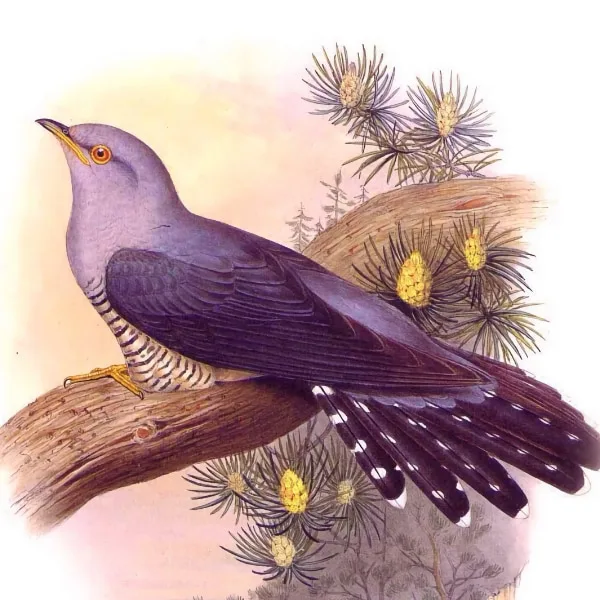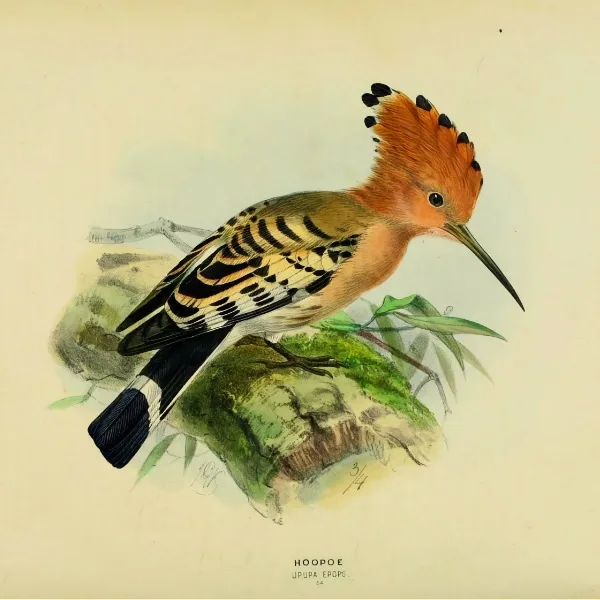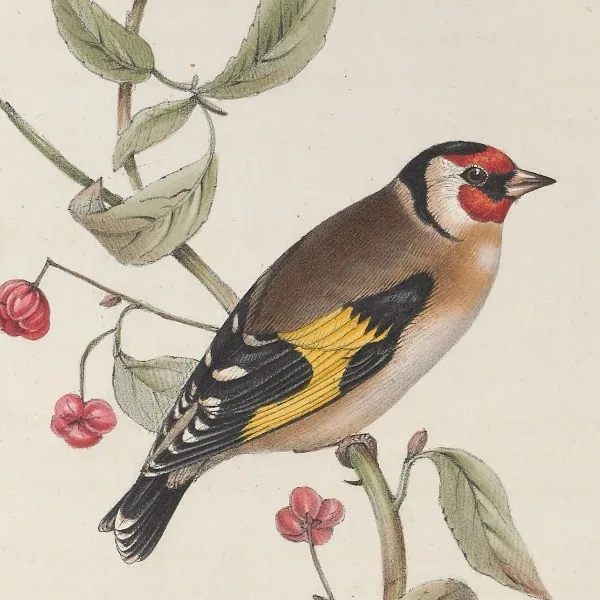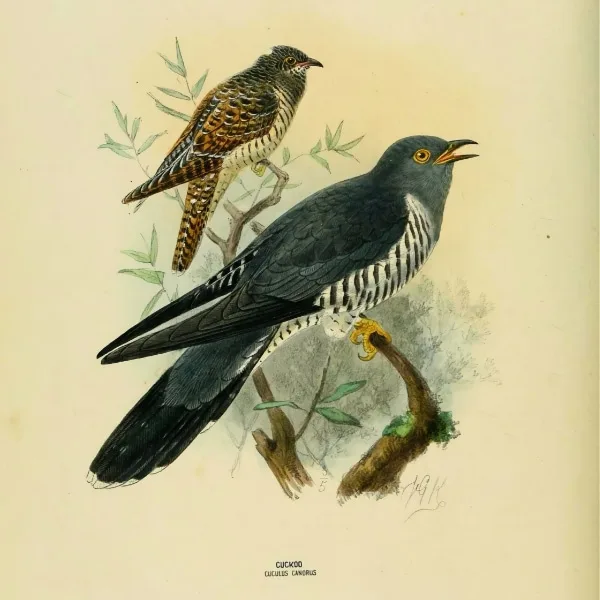The cuckoo has long been a symbol of fate, transformation, and mystery in folklore across different cultures. Often associated with deception, unfulfilled longing, and messages from the spirit world, the cuckoo’s distinct call has inspired countless myths that reflect both admiration and superstition.
In this article, we will explore the most significant stories and legends about the cuckoo, analyze their deeper meaning, and examine how these myths align with the bird’s real-life behavior.
The stories of the cuckoo
The Story of the Two Brothers and King Alexander
In the time of Alexander the Great, there lived two brothers, Cuckoo and Mugur, known for their unmatched beauty and valor. They became captains in Alexander’s army, fighting fearlessly against the dog-headed people who terrorized the land.
These monstrous beings, half-man and half-dog, raided villages, abducted women, and devoured men like cattle. Determined to rid the world of their menace, Alexander gathered his greatest warriors, among them the two brothers.
For three days and nights, they fought fiercely, cutting down the dog-headed warriors as if harvesting grain. On the fourth day, the brothers captured the monstrous king and brought him before Alexander, where he was executed. Their homeland was then burned to the ground, ensuring that none of their kind would return.

With each victory, Alexander’s empire expanded, but so did his ambitions. He led his army across scorching deserts, through lands filled with dragons and mythical beasts, until at last, they arrived at the Gates of Paradise. Angels with flaming swords guarded the entrance, allowing only those who were pure of heart to pass.
Mugur, noble and steadfast, was permitted entry. Cuckoo, however, stood at the gate with his beloved wife, eager to follow. But the laws of Paradise were absolute – no one could enter with a companion. As he pleaded for entry, the gate slammed shut, and in that moment, he and his wife were transformed into birds.
Ever since, the cuckoo has wandered the world, calling out for his lost brother, longing for the reunion that will never come.
The Story of the Hoopoe and the Cuckoo
Once, the hoopoe and the cuckoo were the closest of friends. The hoopoe, plain in appearance, admired the cuckoo’s beautiful crest and asked to borrow it for a grand wedding they had both been invited to. Trusting his friend, the cuckoo agreed, never suspecting deceit.
At the wedding, the hoopoe was the center of attention, admired for its striking new look. Flattered by the praise, it decided never to return the borrowed crest. When the cuckoo later asked for it back, the hoopoe feigned ignorance. “I have no idea what you mean,” it said.

Feeling betrayed, the cuckoo sought justice. A great assembly of birds was called, and the lark was chosen as judge. But the lark, who had taken a liking to the hoopoe, ruled in its favor, declaring that the crest suited the hoopoe so well that it should keep it. Enraged by this unfair judgment, the cuckoo severed its ties with the lark and the hoopoe, choosing to live apart from them forever.
From that day on, the hoopoe kept its crest, and the cuckoo, remembering its betrayal, no longer mingled with the other birds.
The Story of the Cuckoo and the Palace of the Goldfinch
Long ago, all birds were summoned by God to choose a king. But birds, being quarrelsome creatures, could not come to an agreement, each believing it deserved the crown. Tiring of their bickering, God made the decision for them and declared the goldfinch their king.

The cuckoo, however, arrived late and missed the proclamation. Approaching the new ruler, the goldfinch, he apologized for his tardiness. The goldfinch, though merciful, decided to give the cuckoo a task: “Since you are skilled in moving through the forest, build me a palace from the bark of the trees,” he commanded. The cuckoo, ever carefree, agreed immediately.
Yet as the days passed, he became distracted, flying from tree to tree, singing and enjoying the warm weather. By the time autumn arrived, he had built nothing. Realizing that the goldfinch would soon demand his palace, the cuckoo grew afraid and disappeared into the thickest part of the forest, where he fell silent.
To this day, the cuckoo stops singing after midsummer, hiding in fear of the goldfinch’s wrath.
Deep dive into meaning and symbolism
The cuckoo’s recurring role in myths often highlights themes of transformation, exile, and longing. In the Story of the Two Brothers, the cuckoo becomes a symbol of separation and eternal searching, mirroring the way the bird’s call echoes through forests in spring. This tale also reinforces a belief found in many cultures: that the cuckoo is a wandering soul unable to find peace.
The Hoopoe and the Cuckoo tale showcases another common theme: betrayal and deception. The cuckoo is frequently depicted as a bird tricked or cheated, reflecting its brood parasitic behavior, where it lays eggs in other birds’ nests.
In contrast, the Palace of the Goldfinch presents the cuckoo as unreliable and lazy, reinforcing the idea that the bird is lighthearted and fleeting.

In Slavic folklore, cuckoos are often linked to widows, grieving lovers, and lost souls. Their call is interpreted as sorrowful mourning, and in some traditions, a cuckoo’s cry is thought to predict death or misfortune.
The cuckoo’s lack of a permanent nest aligns with its mythological role as an outcast, wandering and searching but never truly belonging.
Other tales of the cuckoo
Beyond these primary legends, the cuckoo plays a role in numerous other folktales. In Serbian folklore, a grieving sister is transformed into a cuckoo after mourning her lost brother excessively.
In Russian Erzian mythology, the cuckoo was once destined to be a domestic bird, but after breaking a promise to a goddess, it was punished to live in the forest, never building its own nest.
In Scottish and German folklore, the cuckoo’s first call of the year was seen as an omen for marriage, harvest, or health.
Additionally, in the Wicked Stepmother story, which we previously explored, a murdered boy is reincarnated as a cuckoo, exposing his stepmother’s crime. This reinforces the idea of the cuckoo as a messenger of fate, capable of revealing truths from beyond the grave.
Echoes of the cuckoo
The cuckoo’s mythical attributes often reflect its real-life behavior. Its brood parasitism, in which it lays eggs in the nests of other birds, aligns with its portrayal as deceptive or unreliable. Its melancholic call has contributed to its association with longing, mourning, and the supernatural.
Yet, despite the superstitions and myths surrounding it, the cuckoo remains an iconic and mysterious bird, whose call continues to echo through folklore as a symbol of fate, transformation, and eternal searching.
